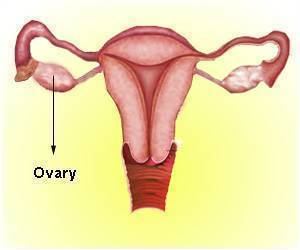Study assesses the outcomes associated with hormonal maintenance therapy (HMT) in low-grade serous carcinoma.
Highlights
- Around 70% of women suffering from low-grade serous carcinoma (LGSC) experience a recurrence of the cancer at some point.
- New study states that hormonal maintenance therapy shows promising results in reducing cancer recurrence.
- It helps to improve progression-free survival rates.
According to the researchers, LGSC accounts for just 10% of serous carcinomas of the ovary/peritoneum. It is a rare histological subtype that originates after diagnosis of a serous tumor of low malignant potential (LMP).
Women who are in their 40s and 50s are typically diagnosed with LGSC. It can also be diagnosed in teenagers and women in their 20s and 30s. Patients usually present with advanced disease.
LGSC is often resistant to chemotherapy but have longer survival compared to high-grade serous carcinomas.
Study
"Our group published research demonstrating that hormonal therapy showed promise in the recurrent setting, with most patients responding or having stable disease. It was a natural progression over time that we began to study this up front, after women received their primary chemotherapy." Gershenson added.
They wanted to evaluate the effect of HMT, compared with surveillance, after surgery and chemotherapy.
Among them, 70 patients received HMT and 133 patients were in the surveillance or routine observation group.
Those who received HRT showed an average progression-free survival (PFS) of 64.9 months compared with 26.4 months for those in the surveillance group.
Overall survival (OS) was 115.7 months following HMT, versus 102.7 months for the surveillance group.
HMT further improved survival rates among 149 women who showed no evidence of disease following completion of primary chemotherapy.
The results showed that women with stage II to IV low-grade serous carcinoma who received HMT after primary treatment had significantly longer progression-free survival rates compared with women who underwent routine observation.
"Hormonal therapy has shown promising results in reducing cancer recurrence, and there is increasing interest in integrating this approach into first-line therapy," said Gershenson. "If confirmatory research in a clinical trial setting shows hormonal maintenance therapy can prevent or delay recurrence of this cancer subtype, it would be practice changing."
Further research using a prospective trial is needed and Gershenson noted that a prospective international Phase III clinical trial has been designed. The study will compare: chemotherapy and observation; chemotherapy and HMT; and hormonal therapy alone, which also has shown early promise in other studies.
Reference
- David M. Gershenson et al. Hormonal Maintenance Therapy for Women With Low-Grade Serous Cancer of the Ovary or Peritoneum. Journal of Clinical Oncology ; (2017) doi.org/10.1200/JCO.2016.71.0632
Source-Medindia
















